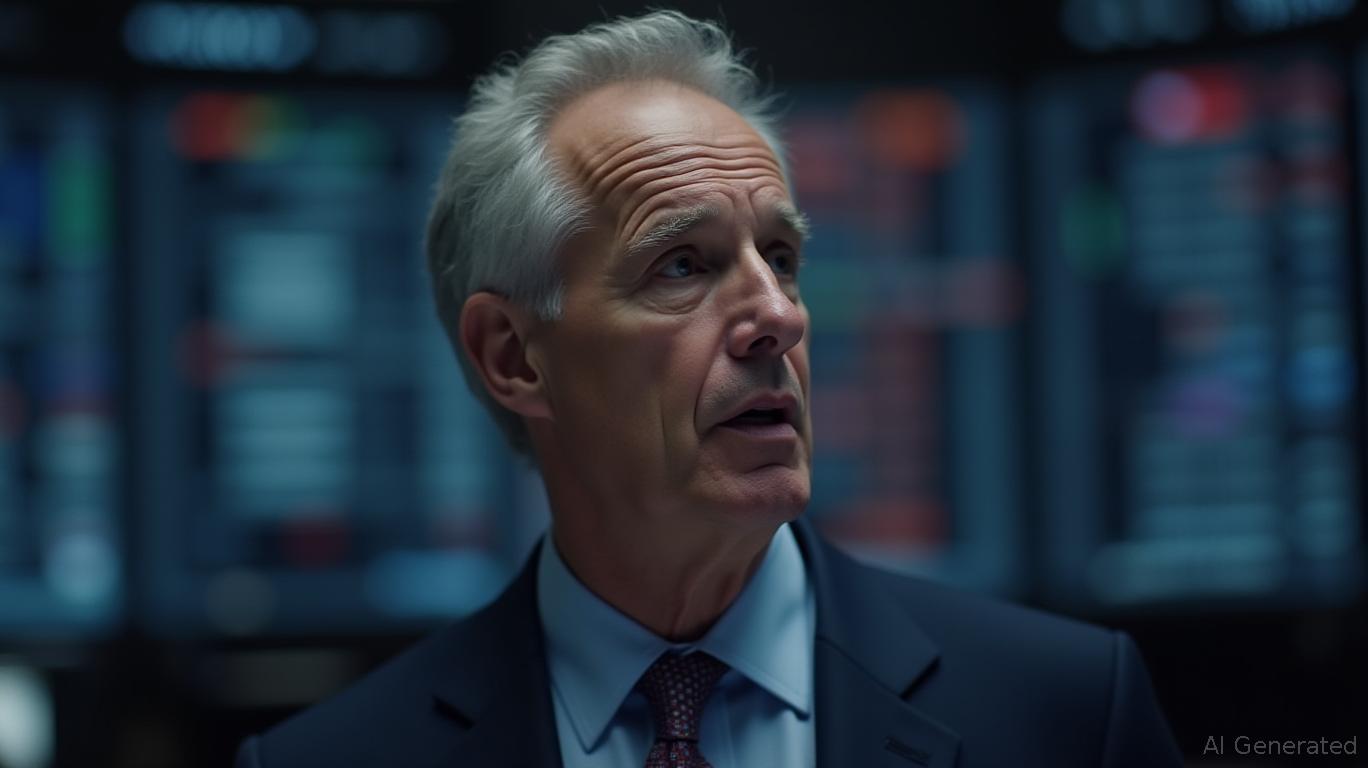Can Artificial Intelligence Rival Human Intuition in Managing Air Traffic?
- Thrust Flight CEO Patrick Arnzen argues AI cannot fully replace human judgment in air traffic control, emphasizing years of training and adaptability critical for safety. - Recent safety incidents and aging infrastructure have intensified debates over AI adoption, with startups like NoamAI advocating automation to address staffing shortages. - The UK is modernizing airspace design to reduce delays, but Arnzen highlights regulatory hurdles, outdated systems, and high costs as barriers to AI implementation
Patrick Arnzen, CEO of Thrust Flight, a flight training company, believes that air traffic control is fundamentally reliant on human expertise and has voiced doubts about artificial intelligence being able to completely oversee airspace. His comments come at a time when there is increasing momentum to upgrade air traffic management, as both government agencies and industry leaders contend with outdated systems, growing air travel, and recent safety concerns, according to Fortune.
Arnzen’s reservations stem from the intricate nature of air traffic control, a profession that demands extensive training and experience. “It takes years to develop the intuition needed to do this job well—not just quickly, but also safely,” he explained to IT Brew, stressing that aviation safety depends on human decision-making and flexibility. This viewpoint stands in contrast to the ideas of some tech innovators and startups like NoamAI, which support the use of AI-based systems to support or even take over from human controllers, as also noted in Fortune.

The urgency to implement AI has increased after several major disruptions. In October 2025, a shortage of air traffic controllers led to widespread flight cancellations in the U.S., and a tragic accident in January involving a military helicopter and a commercial plane at Washington Reagan National Airport resulted in 67 fatalities, Fortune reports. These events have sparked renewed discussions about automating air traffic control, especially as the aviation sector experiences rapid expansion. By 2025, the UK had already started revamping its airspace to cut down on delays and emissions, with the UK Airspace Design Service (UKADS) expected to be fully functional by the end of the year, according to Yahoo Finance.
Nevertheless, Arnzen points out that regulatory and operational obstacles make AI a challenging fit for aviation. He notes that the industry is “heavily regulated,” which complicates the introduction of new technologies, even when they are available. Issues such as legacy infrastructure, reluctance to adopt change, and the lack of clear guidelines for AI in safety-critical roles further complicate matters, a point he reiterated in Fortune. Additionally, the significant expenses involved in upgrading air traffic management—including new technology, equipment, and staff training—are particularly burdensome for smaller airports and developing countries, as Yahoo Finance highlights.
Arnzen does not reject AI outright, but urges a prudent approach. “This technology is on the horizon, and it’s something we should welcome. However, we must proceed with caution and never hand over complete control to machines,” he stated. His perspective is in line with a broader industry movement toward hybrid systems, where AI supports human controllers rather than replacing them. Many control towers already rely on AI for tasks such as tracking weather and optimizing routes, but human supervision remains essential, as Fortune discusses.
This balance between embracing new technology and exercising caution is at the heart of a wider debate in aviation. Automation offers the potential for greater efficiency and reduced costs, but the consequences of failure are severe. As countries like the U.S. and UK work to upgrade their air traffic infrastructure, the unresolved question is whether AI can rise to the challenge in an industry where every second counts, a concern also mentioned in the Yahoo Finance report.
Disclaimer: The content of this article solely reflects the author's opinion and does not represent the platform in any capacity. This article is not intended to serve as a reference for making investment decisions.
You may also like
Bitcoin News Update: Powell's Ambiguity Triggers Market Drop, Bitcoin Dips Under $110K
- Fed’s 25-basis-point rate cut and Powell’s uncertainty over a December cut triggered Bitcoin’s 5% drop below $110,000. - Markets reacted sharply, with the Dow falling 200 points and $261M in Bitcoin futures liquidations. - Analysts highlight macroeconomic risks and U.S.-China trade talks as key factors influencing Bitcoin’s range-bound action.

Tech's investment in AI and geopolitical advantages drive up stocks and digital currencies
- Meta's $51.2B Q3 revenue beat estimates but EPS fell short, yet its AI/cloud investments bolster Wall Street optimism and 27% stock gains in 2025. - Intel's TSMC executive recruitment rumors and NVIDIA's $1B Nokia investment highlight AI talent/resource wars driving tech stock surges. - Trump-Xi trade talks and $36.2B Boeing deal boost Bitcoin 1.6% as investors anticipate eased tensions stabilizing crypto markets. - Magnificent Seven's 34% S&P 500 dominance reflects AI-driven tech consolidation, with hyp

Quack AI Introduces x402 BNB on BNB Chain
Snorter Tanks, Bitcoin Hyper Sparks Confusion, BlockDAG’s $435M Run Leads 2025’s Presale Crypto Coins!